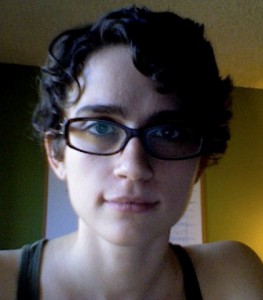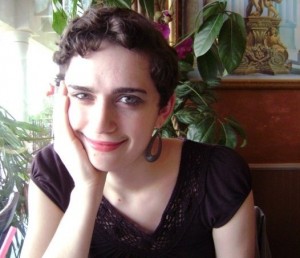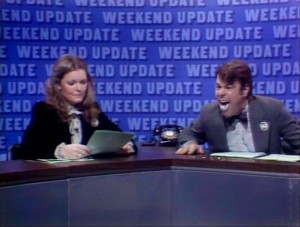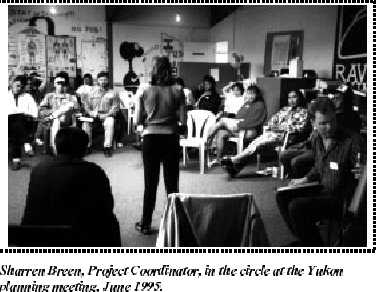 Saw this recent piece in Ed Week, “Hybrid Home Schools Gaining Traction”, highlighting a trend which may turn out to be the new emerging norm for education as we get deeper into this new century. Stated simply using an environmental metaphor, the current “monoculture” of full-time year-round instructional school attendance may be gradually supplanted by perhaps a richer “polyculture” including an array of learning experiences – some classes, some self-study, some collaborative work, and more real-life experience.
Saw this recent piece in Ed Week, “Hybrid Home Schools Gaining Traction”, highlighting a trend which may turn out to be the new emerging norm for education as we get deeper into this new century. Stated simply using an environmental metaphor, the current “monoculture” of full-time year-round instructional school attendance may be gradually supplanted by perhaps a richer “polyculture” including an array of learning experiences – some classes, some self-study, some collaborative work, and more real-life experience.
Tag Archives: homeschooling
A Blue-Collar Girl in a White-Collar World
 I am republishing this piece written by my daughter Emma and originally published on Daily KOS (click here to see on Daily KOS). Also some extensive replies Emma made to some comments she got…
I am republishing this piece written by my daughter Emma and originally published on Daily KOS (click here to see on Daily KOS). Also some extensive replies Emma made to some comments she got…
I am (and to some extent, have always been) a writer, but my desire to become a novelist did not emerge until after I’d made the choice to drop out of high school and become an “autodidact” (someone who is self-taught — see My Experience With Unschooling). All I knew then was that being in a traditional school setting made me terribly unhappy (for reasons that could fill a separate blog piece) and that I’d always had a knack for creative writing. I had no idea what was in store for me, venturing out into the wilderness, leaving everything I was expected to believe about school behind.
From Feminism to Unschooling

My take on Wendy’s thinking here, is that she sees a connection between feminism and unschooling because both challenge our society’s remaining patriarchal traditions and values that see men (particularly adult men) in the superior position to women and children in societal hierarchies of control, where “father knows best”.
Certainly our state-run public school systems in the U.S. can be viewed as hierarchical organizations with students (young people of both genders) under the authority and control of teachers (mostly adult women) who are then subject to a controlling hierarchy of authority above them. A controlling hierarchy that becomes more male-dominated, the higher you work your way up the levels of that hierarchy to the state legislators, ed secretaries and boards at the top of the pyramid. This is not unlike our society’s political, economic and religious institutions which continue to be male-dominated (though trending in a more egalitarian direction).
Writes Wendy in her piece…
It had never occurred to me that unschooling and feminism were mutually exclusive. In fact, I am quite certain that it, in all its label-defying glory, is the ultimate feminist act, for a variety of reasons on which I’ll elaborate in this article.
In my reading of her article I would summarize those reasons as follows…
1. Our male-dominated society devalues the child-rearing function including mostly relegating it to mothers and not paying the female-dominated childcare and teaching professions comparably to more male-dominated professions
2. Feminism took a great step forward empowering women to work outside the home, but if women are to be fully empowered, they should equally be empowered to choose to focus their lives within the home raising children
3. As empowered mothers, women should not play second fiddle to the conventional wisdom of mostly male societal experts who claim to know better than those mothers what is best for their children
Unschooling in the Art of Religion
 It is my continuing effort to promote the concept of “unschooling”, the process of learning from real life, outside any formal learning environment, and without a teacher. It is a mostly unsung method of human development that often gets short shrift compared to more formal modes and venues for education. We conventionally think of education and learning as an activity focused on our younger years, but at our bests we humans continue to be natural and voracious learners throughout our lives. We are beginning to acknowledge that human propensity with the concept of “lifelong learning”.
It is my continuing effort to promote the concept of “unschooling”, the process of learning from real life, outside any formal learning environment, and without a teacher. It is a mostly unsung method of human development that often gets short shrift compared to more formal modes and venues for education. We conventionally think of education and learning as an activity focused on our younger years, but at our bests we humans continue to be natural and voracious learners throughout our lives. We are beginning to acknowledge that human propensity with the concept of “lifelong learning”.
As I have said before, becoming familiar with the concept of unschooling reading works by John Holt, Pat Farenga, Matt Hern and John Taylor Gatto, I have been taking a long look back at the road I’ve traveled and the key developmental experiences that have contributed the most to who I am today. Though I went to school (K-12 & college, some 20 years worth!), my school experience contributes relatively little to who I really am today, and the wisdom and skill set that I bring to my life’s activities. What is more significant, in retrospect, are the major themes of my own self-directed learning done outside of school.
Case in point is my interest in religion, and my informal pursuit of understanding about the topic, its history, its contemporary practice, and the underlying reasons it is an important part of so many people’s lives. I’ve always been an atheist but I’ve also become fascinated by religion. Go figure! But having the opportunity for over twenty years to participate in Unitarian-Universalism, which is generally framed as a religion (albeit a non-dogmatic one), I became very interested in learning about the nature of the religious process and the role it has played in human society. Add to that my fascination with history, where religion seems to have played a much larger role than the more conventional study of history, particularly in schools, would lead you to see.
Wikipedia says…
Religion is a collection of cultural systems, belief systems, and worldviews that establishes symbols that relate humanity to spirituality and, sometimes, to moral values. Many religions have narratives, symbols, traditions and sacred histories that are intended to give meaning to life or to explain the origin of life or the universe. They tend to derive morality, ethics, religious laws or a preferred lifestyle from their ideas about the cosmos and human nature.
Unlike many people I’ve met, I’ve had little or no religious instruction in my life, and never really set foot in a “house of worship” until I was 13 (other than attending a couple weddings). Neither of my parents were ever involved in any sort of religious practice, though we had family friends who were. My mom always said she believed in god (not sure whether the capital “G” would be appropriate here), but she also firmly believed that religion was the scourge of the Earth!
My dad was a university English professor, who actually wrote his dissertation on John Henry Newman, an influential Anglican theologian in the early 19th century. But beyond that, I don’t recall him ever talking about god, believing in god, or religion. My dad might well have been an atheist, but both my parents could definitely be described as humanists, based on the definition from Wikipedia…
Humanism is an approach in study, philosophy, world view or practice that focuses on human values and concerns, attaching prime importance to human rather than divine or supernatural matters.
Some people, especially some folks on the religious right, would describe humanism, or particularly “secular humanism”, as a religion (I recall Jerry Falwell making that argument more than once!) I generally would not, but I see their point, since for example, many people who hold essentially humanist values and view the world from a secular framework participate in Unitarian-Universalism based on those values.
So what follows is a long narrative (over 7000 words) of my own exploration of religion – its ideas, practice, and the reaching for a deeper metaphysical meaning of life. In putting together this piece, I struggled to try and break it up into smaller free-standing segments. But I think it speaks more to that natural human drive to learn and develop, when it is not diminished by a focus on formal schooling. So in my case I have spent thousands of hours participating in activities that have broadened my understanding of religion and its practice, but never gone to divinity school or even taken a formal “class” on religion.
Guest Blog by Emma Rosloff: My Experience with Unschooling (Abbreviated)
 This is the first time I’ve published a piece by a “guest” blogger, which in this case happens to be my daughter Emma! She published her piece initially on the Daily KOS progressive political blog site (click here to link to it), and got a large number of views, recommends and comments, plus a “Community Spotlight” acknowledgement. I’ve posted it below in its entirety, along with some follow-up replies she made to comments she received…
This is the first time I’ve published a piece by a “guest” blogger, which in this case happens to be my daughter Emma! She published her piece initially on the Daily KOS progressive political blog site (click here to link to it), and got a large number of views, recommends and comments, plus a “Community Spotlight” acknowledgement. I’ve posted it below in its entirety, along with some follow-up replies she made to comments she received…
Saturday Night Home School Fever
 Confessing my own bias as a big supporter of unschooling, I read Dennis Danziger’s piece, “Home School Fever”, in the April 24 edition of the Huffington Post, and it seemed to push more buttons in me than I even knew I had! I recall that classic Saturday Night Live “Weekend Edition” bit where Jane Curtin and Dan Aykroyd do a “Point-Counterpoint”, and after Curtin dresses down Aykroyd in every possible way he grits his teeth and responds, “Jane, you ignorant slut!” Not sure if Danziger is playing the Curtin or the Aykroyd part in this encounter, but grrrr!
Confessing my own bias as a big supporter of unschooling, I read Dennis Danziger’s piece, “Home School Fever”, in the April 24 edition of the Huffington Post, and it seemed to push more buttons in me than I even knew I had! I recall that classic Saturday Night Live “Weekend Edition” bit where Jane Curtin and Dan Aykroyd do a “Point-Counterpoint”, and after Curtin dresses down Aykroyd in every possible way he grits his teeth and responds, “Jane, you ignorant slut!” Not sure if Danziger is playing the Curtin or the Aykroyd part in this encounter, but grrrr!
I know the Post has a wonderful contributor, Peter Gray, who is an eloquent homeschool/unschool advocate (and just had that great interview with unschooler Kate Fridkis published in Psychology Today). So if the Post is trying to provide “both sides” of the homeschooling issue, they sure picked an uniformed, unthoughtful spokesperson for conventional public “schooling”. My initial reaction is that it rises to the level of hate speech, but that may be my buttons talking.
So I’m trying to parse his bilious words while re-initializing this previously unrevealed array of triggers in my psyche that he so expertly managed to activate with a mere 514 word rant. Certainly for sheer “button per word” efficiency, Danziger must be up there with the best of show. (Take a deep breath Coop… exhale… once more… okay?… yes… good… let’s proceed.)
Thoughts on (some) Liberals Homeschooling our Kids
 The opinion piece, “Liberals, Don’t Homeschool Your Kids: Why teaching children at home violates progressive values”, by Slate magazine contributor Dana Goldstein, touched a nerve with political progressives on Daily KOS who strongly second Goldstein’s call and also others who as strongly disagree. Whatever you think about homeschooling, the piece touches on some fundamental issues about how those of us who believe in equality and justice for all (and particularly in the area of education and human development) can continue to work together to move our country towards realizing those goals.
The opinion piece, “Liberals, Don’t Homeschool Your Kids: Why teaching children at home violates progressive values”, by Slate magazine contributor Dana Goldstein, touched a nerve with political progressives on Daily KOS who strongly second Goldstein’s call and also others who as strongly disagree. Whatever you think about homeschooling, the piece touches on some fundamental issues about how those of us who believe in equality and justice for all (and particularly in the area of education and human development) can continue to work together to move our country towards realizing those goals.
As I see it, the gist of Goldstein’s argument is that homeschooling is a selfish practice that is antithetical to concern for the entire community, a concern that authentically progressive people should share. “Liberal homeschoolers” in particular are naively undermining a crucial public institution (public schools) that needs not only their tax dollars but their kids sitting at desks in those schools, for those schools to survive and continue to serve the entire community and promote a truly democratic society.
Writes Goldstein…
Although the national school-reform debate is fixated on standardized testing and “teacher quality” — indeed, the uptick in secular homeschooling may be, in part, a backlash against this narrow education agenda — a growing body of research suggests “peer effects” have a large impact on student achievement. Low-income kids earn higher test scores when they attend school alongside middle-class kids, while the test scores of privileged children are impervious to the influence of less-privileged peers. So when college-educated parents pull their kids out of public schools, whether for private school or homeschooling, they make it harder for less-advantaged children to thrive.
Per Goldstein, though a middle-class family may believe they can improve their own kid’s development by pulling that kid out of public school, they are certainly doing a disservice to the less advantaged kids who are left behind, as well as the whole fabric of a democratic society that should not divide people into “us and them” or “haves and have nots”. This even if that middle-class family continues to pay taxes for public schools while educating their own kid outside of public school on their own dime!
To get a sense of the scope of this issue, the latest U.S. Department of Education statistics I’ve seen show that some ten percent of kids in the U.S. go to private school, while only one to two percent are homeschooled. So I’m assuming Goldstein highlights homeschooling in her piece because it is trending upward, while private school enrollment is a longstanding reality (which is actually trending downward).
Starting to Imagine Non-Compulsory Schools
 As I have mentioned before, I’ve been involved in an ongoing email “forum” over the past five years with fellow members of the Alternative Education Resource Organization (AERO). Topics revolve around youth, learning, and our societies educational institutions and possible alternatives to those institutions. Admittedly, we forum participants can be guilty of arguing perhaps from more of an ivory tower rather than from the trenches at times, but then again you have to be able to see the entire forest at times to best take care of all the trees.
As I have mentioned before, I’ve been involved in an ongoing email “forum” over the past five years with fellow members of the Alternative Education Resource Organization (AERO). Topics revolve around youth, learning, and our societies educational institutions and possible alternatives to those institutions. Admittedly, we forum participants can be guilty of arguing perhaps from more of an ivory tower rather than from the trenches at times, but then again you have to be able to see the entire forest at times to best take care of all the trees.
One of the topics that keeps coming up and engenders a lot of impassioned prose on our forum is the reality of compulsory education for youth and the possibility of making it non-compulsory instead. The opinions on what would result from this change run the gamut, even among this self-selected group of alternative educators and other supporters (like me) of learning alternatives. Some of the forum participants (like me) take a more left-libertarian position and argue that our schools and the formal education process in general would be transformed for the better by shedding coercive elements of compulsion. Other list colleagues think that though in some ideal world this would be the way school should be, in our all too real and non-ideal world ending compulsory school attendance would be a disaster, and particularly for poor families that live in dangerous neighborhoods with little other infrastructure to offer youth.
Continue reading →
The Case for Many Educational Paths
 Starting in third grade with learning the multiplication tables, our son Eric started having a problem with school. By seventh grade he would not do any homework, had been diagnosed with ADD, was taking Aderall, had been through an IEP, and had had a number of sessions with an educational therapist. When he got to the point in eighth grade of writing “F**k Math” on his standardized math test, we pulled him out of school. Continue reading →
Starting in third grade with learning the multiplication tables, our son Eric started having a problem with school. By seventh grade he would not do any homework, had been diagnosed with ADD, was taking Aderall, had been through an IEP, and had had a number of sessions with an educational therapist. When he got to the point in eighth grade of writing “F**k Math” on his standardized math test, we pulled him out of school. Continue reading →
Thoughts on Homeschooling in Alaska & Promoting Educational Diversity
 There is an extensive article in today’s online edition of Education Week, Critics Question Alaska Home-Schooling Success, from the Associated Press on issues with home-schooling, particularly state regulation of this educational path in Alaska.
There is an extensive article in today’s online edition of Education Week, Critics Question Alaska Home-Schooling Success, from the Associated Press on issues with home-schooling, particularly state regulation of this educational path in Alaska.
The article starts out stating the issue clearly and succinctly… Continue reading →